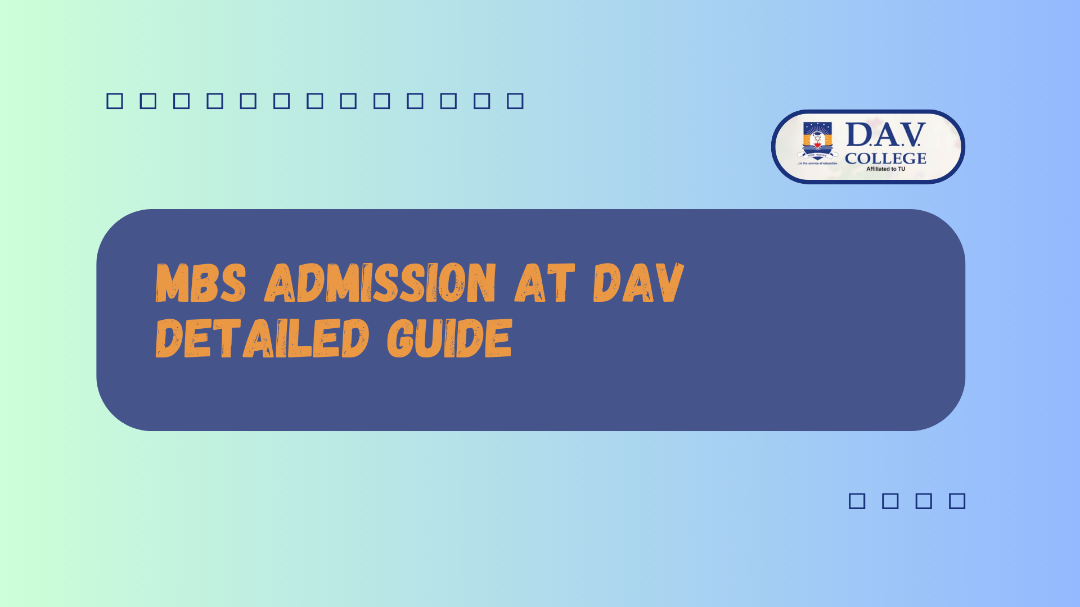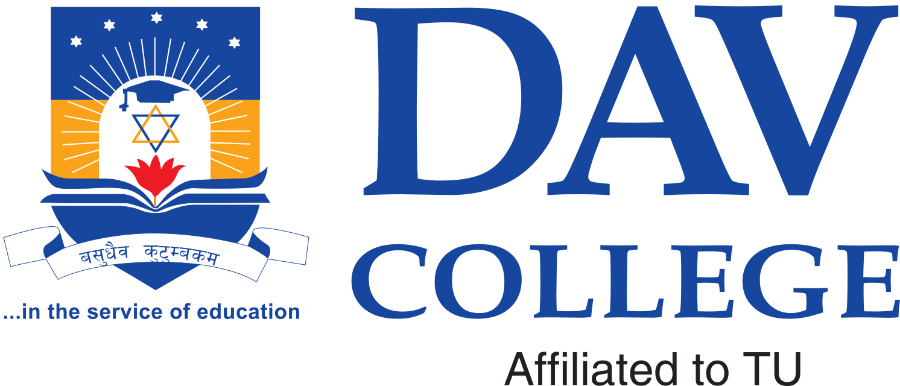Common Mistakes to Avoid During MBS Admission
Published on 2025-07-24

Pursuing a Master of Business Studies (MBS) in Nepal is a wise choice if you’re looking to advance your career in management, accounting, or entrepreneurship. But here’s the catch—getting into the right MBS program isn't just about submitting your form on time. Many students unknowingly make critical errors during the admission process that cost them their preferred college, scholarship opportunities, or even a timely start.
To help you make confident, informed decisions, here’s a detailed guide on MBS admission mistakes to avoid, based on real scenarios we’ve observed in Nepali colleges like TU-affiliated campuses, PU, and KU.
1. Choosing a College Without Researching Curriculum and Reputation
Don’t fall for flashy advertisements or the closest campus to your home. Many students pick colleges based on hearsay or convenience, only to realize later that the course delivery, faculty, or learning environment doesn’t align with their expectations.
What to do instead:
Create a shortlist of colleges based on curriculum quality, specialization options, accreditation, and placement support. Visit campuses if possible, talk to alumni, and thoroughly scan their websites.
2. Ignoring Admission Deadlines and Calendar
This is one of the most preventable mistakes, yet it happens every year. You may have excellent grades, but if you miss a deadline—even by a day—you risk losing your seat.
What to do instead:
Set calendar reminders for each admission phase: application start, deadline, entrance exam date, interview (if applicable), and fee submission. Follow the official websites of TU, KU, or PU for updates.
3. Underestimating the Entrance Exam (CMAT/Other Tests)
Many students believe the entrance test is just a formality. Wrong move. Some MBS programs, particularly in top-tier colleges like DAV, use entrance exam scores as a key criterion for admission.
What to do instead:
Prepare seriously for the CMAT or your college’s required entrance test. Focus on verbal ability, quantitative aptitude, logical reasoning, and general awareness. Use online practice tools or join a short preparatory course if needed.
4. Overlooking Eligibility Requirements
Some students apply to programs for which they’re not academically eligible—such as those lacking a minimum GPA or not meeting undergraduate discipline criteria. That’s a fast track to rejection.
What to do instead:
Carefully read the eligibility criteria. Most MBS programs require at least a second division in your Bachelor's degree (BBS or equivalent). If you have any academic gaps, consult the admissions office before applying.
5. Applying to Only One College
Placing all your hopes on a single institution is risky. Seats fill up fast, and you don’t want to wait another year because your only option didn’t pan out.
What to do instead:
Apply to multiple colleges that meet your standards. Prioritize them based on your preference, but have a backup plan. Remember, it's better to start somewhere and upgrade later than miss out altogether.
6. Ignoring Financial Planning
Tuition fees, admission charges, materials, and potential living costs—MBS is an investment. Many students start the process without evaluating whether they can afford the full two-year commitment.
What to do instead:
Calculate the total cost of the program. Look for scholarships, installment payment options, or financial aid offered by the college. Discuss with your family and prepare a feasible budget.
7. Submitting Incomplete or Incorrect Documents
One missing transcript, an incorrect signature, or an invalid photo can delay or invalidate your application. It happens more often than you think.
What to do instead:
Double-check every document before submission. Use a checklist: mark sheet, character certificate, passport-sized photo, entrance admit card, and citizenship. Make photocopies of everything.
8. Neglecting to Prepare a Purposeful Statement or Interview
Some colleges require a statement of purpose or a short interview. Many students wing it, resulting in a vague and uninspiring impression.
What to do instead:
Take your SOP seriously. Highlight your motivation, academic background, and long-term goals. For interviews, be clear about why you chose the MBS program and how it aligns with your plans.
9. Following Peer Pressure Over Personal Goals
Choosing a college or specialization just because your friends are doing it is a classic trap. Your interests and career path might be completely different.
What to do instead:
Assess your strengths and ambitions. Want to work in finance? Select a program with a strong emphasis on accounting and finance. Planning to go abroad later? Choose an institution with global recognition.
10. Delaying Decision-Making Until the Last Minute
Some students delay application decisions until it's too late—hoping for a better option or just feeling overwhelmed. Ultimately, they either miss the deadline or are left with fewer options.
What to do instead:
Be proactive. Start researching early, consult with counselors, and make informed decisions promptly. Early applicants often get better slots, quicker responses, and smoother processing.
Conclusion
The MBS journey begins long before your first class. It starts with how wisely you navigate the admission process. By avoiding the common pitfalls outlined above, you increase your chances of landing in a college that not only meets your academic needs but also sets you up for long-term career success.
Stay alert, stay informed—and make every application count.
Frequently Asked Questions
What is the minimum GPA required for MBS admission in Nepal?
Most colleges affiliated with TU, KU, or PU require a second division in your Bachelor’s degree. Some institutions may require specific GPAs or subject backgrounds—always verify this information directly with the college.
Can I apply to more than one MBS college simultaneously?
Yes, and you absolutely should. It increases your chances of admission and allows you to compare offers, fees, and facilities before making a decision.
Is work experience required for admission to MBS in Nepal?
No, most MBS programs in Nepal do not require prior work experience. However, having some professional background can strengthen your application during interviews or SOP assessments.
